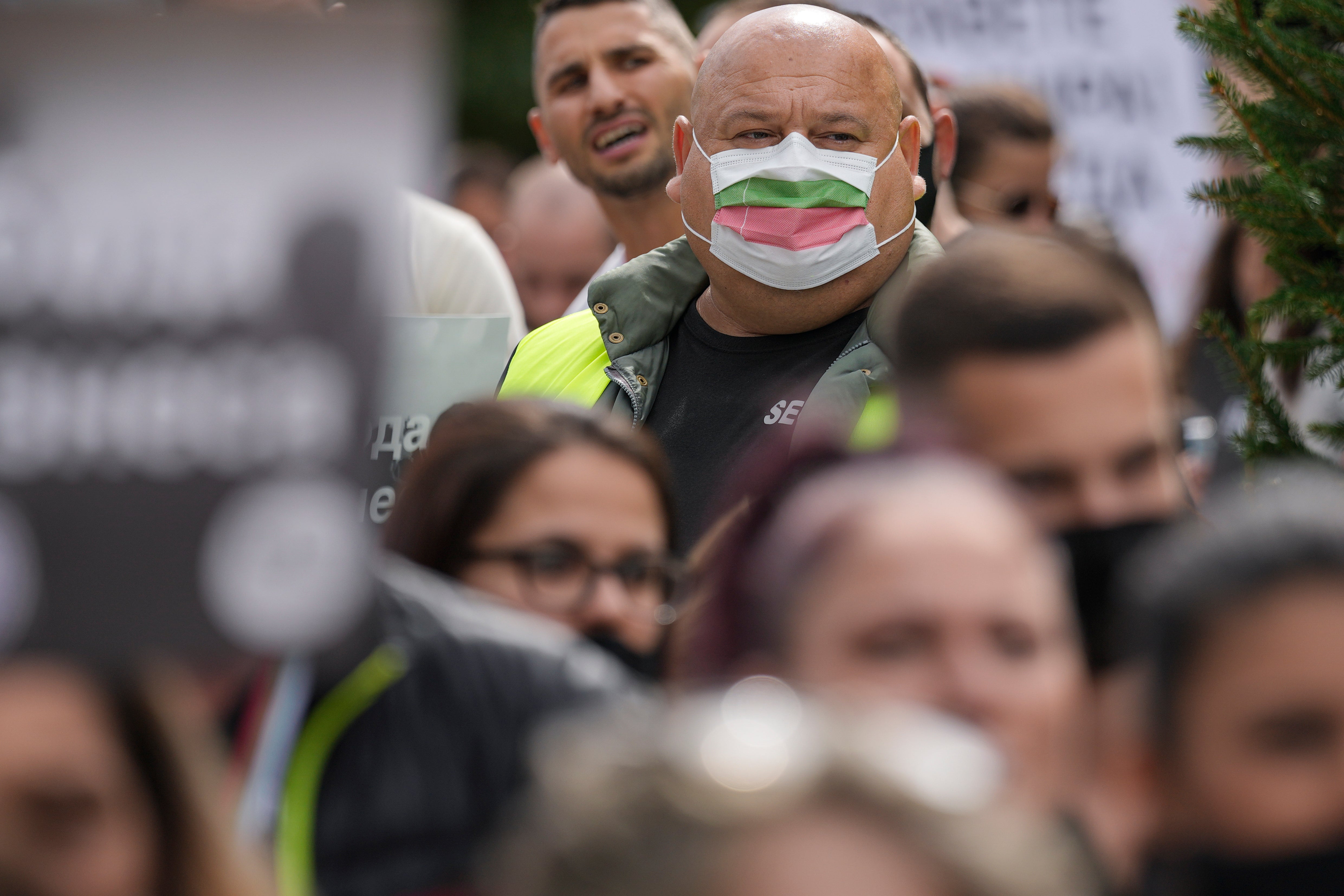Bulgaria to hold an early election after political deadlock
Bulgaria’s president has called a third parliamentary election this year that will be held on Nov. 14 after two previous votes failed to produce a government

Your support helps us to tell the story
From reproductive rights to climate change to Big Tech, The Independent is on the ground when the story is developing. Whether it's investigating the financials of Elon Musk's pro-Trump PAC or producing our latest documentary, 'The A Word', which shines a light on the American women fighting for reproductive rights, we know how important it is to parse out the facts from the messaging.
At such a critical moment in US history, we need reporters on the ground. Your donation allows us to keep sending journalists to speak to both sides of the story.
The Independent is trusted by Americans across the entire political spectrum. And unlike many other quality news outlets, we choose not to lock Americans out of our reporting and analysis with paywalls. We believe quality journalism should be available to everyone, paid for by those who can afford it.
Your support makes all the difference.Bulgaria's president has called a third parliamentary election this year that will be held on Nov. 14 after two previous votes failed to produce a government, authorities said Wednesday.
Parliament will be dissolved and a new caretaker government will be appointed in the European Union country of 7 million. Bulgaria already held parliamentary elections in April and July this year, but the country's largest three parties fail to produce a working coalition government.
On the same day as November’s parliamentary vote, a presidential election will be held in which incumbent President Roumen Radev is seeking a second term. The president said holding the two votes together will save time and money.
“The two campaigns will be taking place at the same time and will merge. I will count on the support of all respectable Bulgarians on the big issues — the fight against poverty and injustice,” Radev told reporters.
Prime Minister Boyko Borissov, who was at the helm for more than a decade, resigned in April after widespread anti-corruption protests against him and his center-right GERB party.
In July's election, the anti-establishment There is Such a People party won the most seats but fell well short of the majority needed to form a government. The GERB party now lacks support from any of the other parties.
Daniel Smilov, a professor of political science at the University of Sofia told The Associated Press that November’s early election will probably lead to another fragmented parliament, extending the political impasse in the EU's poorest member.
“My hope is that the leading parties have learned lessons from the two previous failed parliaments,” he said. “What needs to happen is, either the old parties need to reform ... or the new parties that pretend to bring change need to pull their act together.”
Radev is expected to present the interim government Thursday.
“The next official government will continue to work to eradicate corruption from institutions,” Radev said.
Bulgaria ranked 69th out of 180 countries in Transparency International’s 2020 Corruption Perception Index.
Political turmoil in Bulgaria is also taking place as the EU’s least-vaccinated nation struggles to contain rising coronavirus infections. Bulgaria has vaccinated just 23% of its people — far fewer than the EU average.